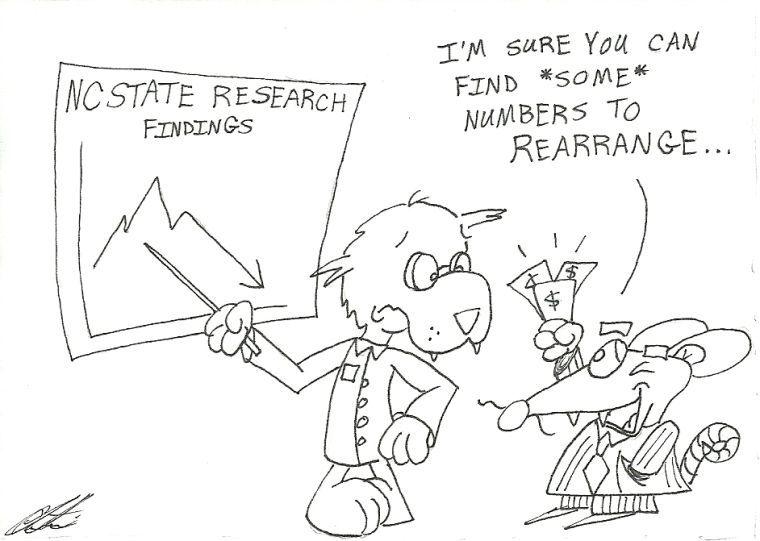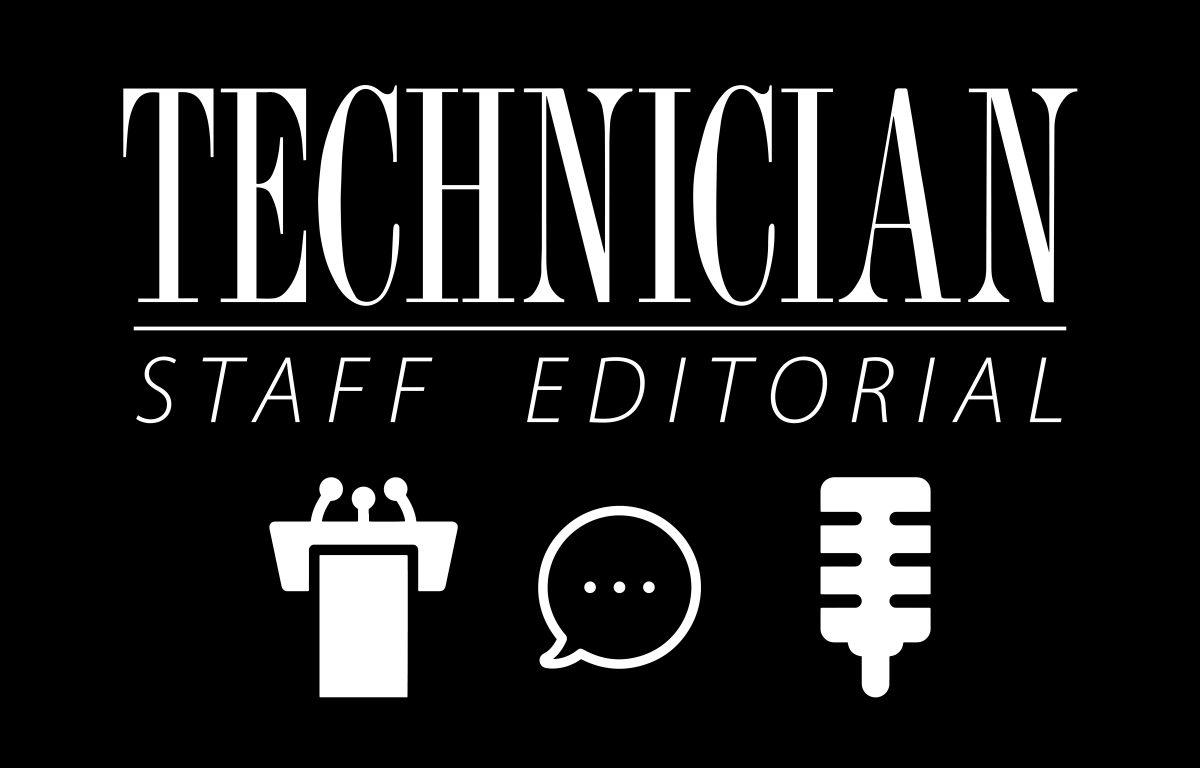As an institution that prides itself in its research, which is often expensive, N.C. State relies heavily on funding from the state and the federal government. The University receives 77 percent of all its research funding from the federal government. However, due to the sequester and recent budget cuts, N.C. State researchers, like those at many other universities, are becoming increasingly dependent on corporate funding and grants from less than reputable sources. This doesn’t sit well with the editorial board of the Technician.
The news of the National Security Agency’s $60.75 million research grant to N.C. State may have come as welcome news to some people as it arrived on the heels of the $138 million cut to the UNC-System, approved by the state legislature in July, but this grant doesn’t come free of consequence. Our university is now associated with the NSA, the agency Edward Snowden revealed to be unjustly spying on American civilians.
But does the fact that the NSA’s grant is three times larger than any previous N.C. State research grant make our association with the agency acceptable?
This is not the first time N.C. State has partnered with a not-so-benevolent company. In 2011, the College of Agriculture and Life Sciences accepted a $500,000 grant from Monsanto Company “to train the next generation of plant breeding professionals,” according to a CALS press release.
But do we really want a company, whose pesticides have been linked to health problems and whose patented seeds have caused problems for farmers, training our students?
N.C. State has had an even stronger relationship with Big Tobacco. Our $2.3 million Reynolds Coliseum was named for William Neal Reynolds, one of the five brothers who helped establish the R.J. Reynolds Tobacco Company in Winston-Salem.
The University has also accepted grants from Liggett, Philip Morris, Brown & Williamson, Vector Tobacco, BT Tobacco and Alternative Cigarettes, Inc.
Chancellor Randy Woodson has made it evident that his main priority is increasing the University’s endowment. But where do we draw the line between making ethical decisions and making budget-conscious ones?
In other words, what companies have such poor reputations that we would refuse to accept their money? Though we would like to trust that the administration of N.C. State will make decisions regarding which corporations or organizations it takes money from based on its ethical responsibility to the scientific community and its students, there are no clear lines that clarify what amount of money is enough to make compromising the integrity of the University a fiscally responsible decision.
More than just affecting the reputation of the University, privately funded research may also impact the validity of the research. When companies fund independent research, they are highly unlikely to publish results that do anything to defame the company. And if they do publish the study, its data might be manipulated — Philip Morris manipulated a study of Sudden Infant Death Syndrome in 2001 to create the impression that smoking around children does not increase the risk for SIDS.
Our reliance on outside funding is a necessary evil, but it’s an evil nonetheless. Ideally, we wouldn’t have to rely on private companies for any funding. This, unfortunately, isn’t the case, and for that reason, we must remain wary of which companies to associate ourselves with. And because we — the students — don’t contribute to these decisions, we must monitor who our school aligns itself with and hold our administration accountable. The interests at stake here are ultimately those of the students — even if that means passing up a chance to grow the endowment.
As the cliché goes, beggars can’t be choosers. But is it not a sign that our priorities are in the wrong place when that the nation’s leading institutions of scientific research are forced into this position?




